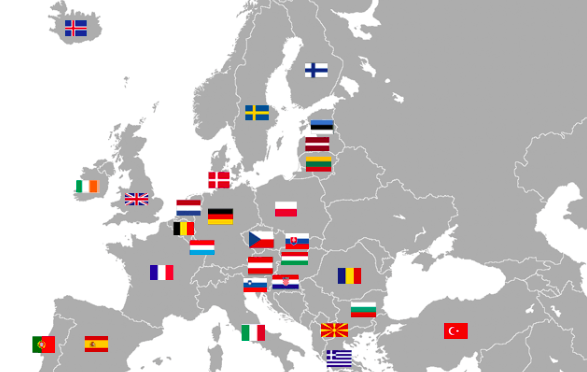Have you discovered the fantastic website www.businessculture.org yet?
If you are teaching Business English, or want to add something about cultural awareness to a general English class, you’ll find this to be an invaluable source of information.
Aimed at businesses wishing to do more business internationally, or students considering spending time abroad for work or study purposes, the site offers business culture guides on 31 European countries, in 9 languages. Each guide includes a short video with interesting facts about the country in question, as well as extensive information on business topics such as culture, etiquette, communication and social media.

I built a 2-week intensive course around this resource, with students divided into regions, and each student taking a country within their region as their own area of expertise. Every day, as well as covering business skills, vocab and grammar, students used businessculture.org to research their country and then created or presented something.
Here are some of the tasks:
Presentation Skills. A mini Pecha Kucha presentation on their chosen country. (Instead of 20 slides with each shown for 20 seconds, they had 10 slides.) They were to include some general information (size, location, language etc), something about the economy, and something they thought really interesting about the country. Each slide was an image and if they really wanted to add text, they were limited to 5 words per slide. They presented these to the students in their regional group.
Report writing. Our ‘company’ is interested in doing business in country x, and the student has been asked to write a report on business etiquette and culture to help us understand our potential business partners better.
After learning about the concept of Nation Branding, and watching some example videos from different countries on youtube, students researched information about what makes their country attractive for business and investment. Create a short video/ narrated slideshow.
Business Meetings. Emailing / Interviews. The website gives a list of questions to be considered before organising or attending a business meeting. Students imagined they were on a business trip to their country and wrote an email to ‘colleagues’ at home telling them some things they noticed about how meetings are run there.
With another group, they created radio reports / podcasts where an ‘expert’ (student) was interviewed by the presenter on the topic of business meetings in Country X.
- What are the local attitudes to business meetings?
- How should you go about organising a meeting?
- How do you greet people at meetings?
- How should you run a meeting?
- What do you need to think about when conducting negotiations?
- What should you do after a meeting?
Other tasks, which involved looking beyond this site for information, included creating a flyer/ itinerary for a 3 day sightseeing tour of a region or city in the country, and researching a national product or brand and creating an infographic mapping out its history. The website always mentions something about the economy, and I found it helpful for students to begin there.
‘Cyprus exports primarily to European countries and, in particular, the UK, Greece and Germany. The main exports are manufactured goods like clothing, pharmaceutical products, wine, cement, furniture and agricultural products.’
It proved to be more fruitful to search online for ‘ Cypriot wine’ rather than a more general ‘products from Cyprus’.
Finally, to bring it all together, we held a ‘European Business Networking’ Trade Fair. The class was divided into 3 groups, and we had three 20 – 30 minute sessions. We had the use of a spare classroom and the first group had 10 minutes to set up. I gave them large sheets of paper and markers, and told them to set up their stands. Then the other students came in and went around from stand to stand, introducing themselves and using the language we had practiced in class to find out about the different countries. Afterwards, they had a few minutes to take down some notes about who they met and what they learned. Then we had the next session.
Later they wrote follow-up emails to 3 of the people they met to make suggestions for future collaboration and arrange meetings.
The trade fair idea worked far better than I could have ever imagined, and the students put more effort into it then they would have done with a standard role play. They actually were the experts, and were enthusiastic about sharing their research and creations (flyers, videos etc) with their classmates.
There are countless other lesson plan ideas that you could come up with using www.businessculture.org. It is definitely a resource I find myself going back to time after time.








